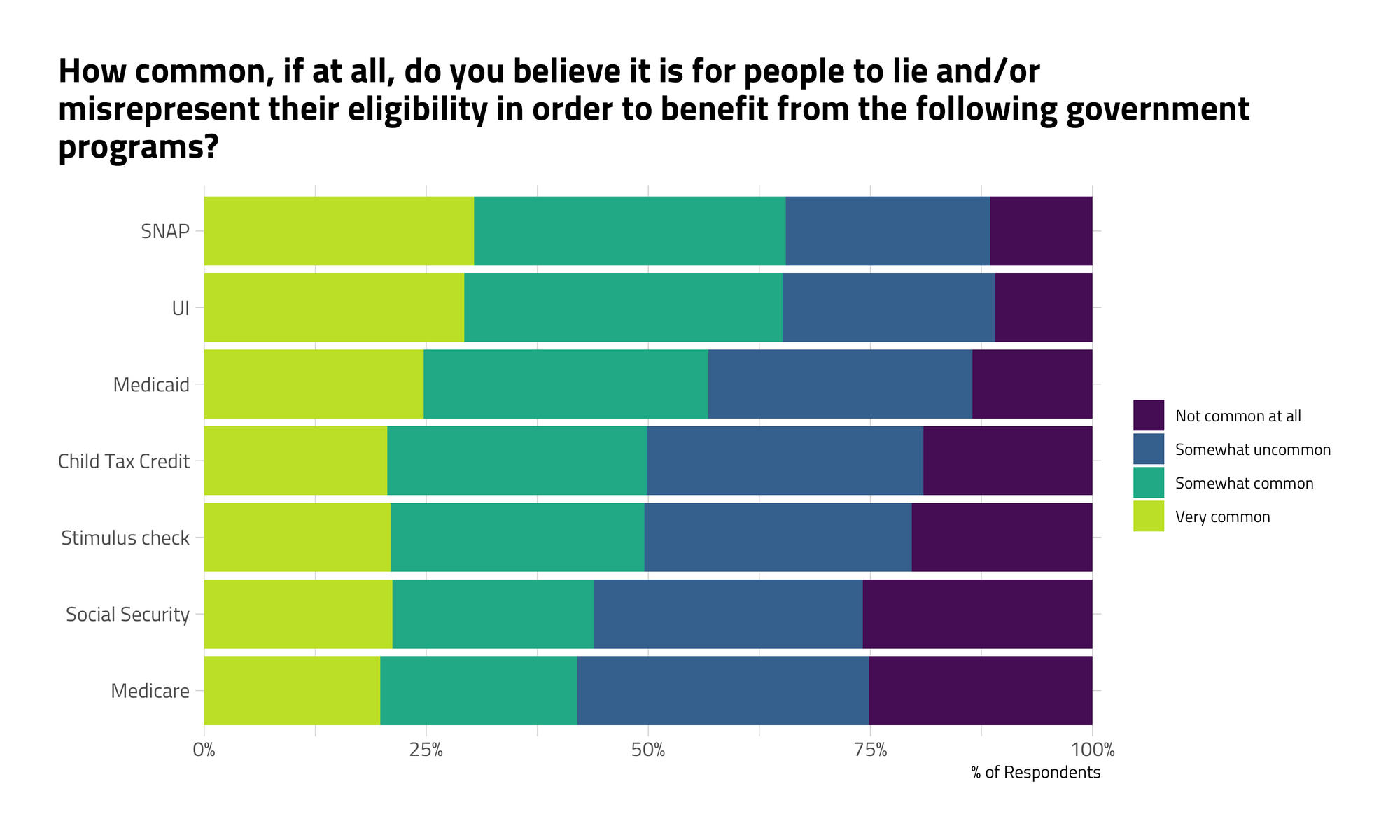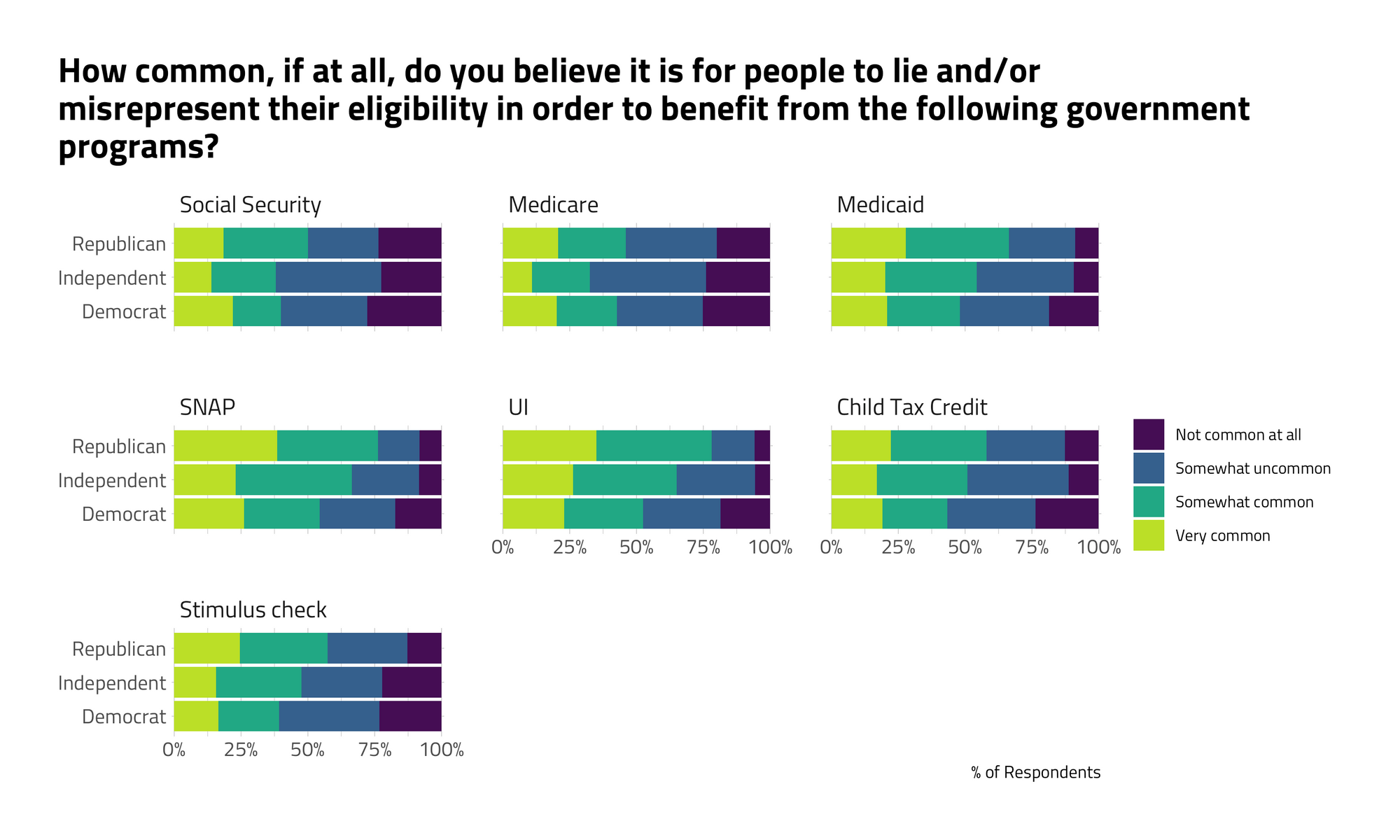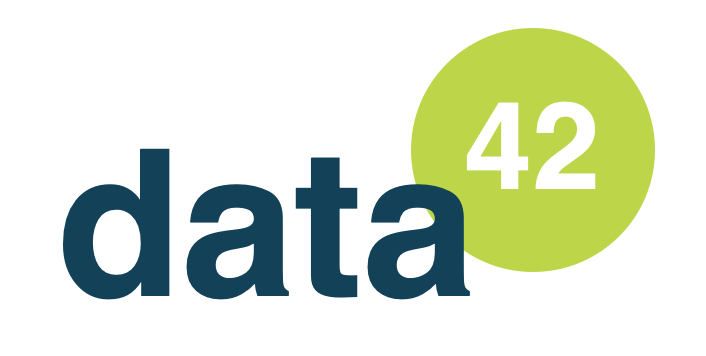By Octavio Medina @octavio_medina
Over the past couple of months we've been running a few small-scale surveys to better understand people's attitudes towards poverty and social safety net programs in the United States. This is part of our broader narrative change work, where we’re exploring how and why people hold particular stories and beliefs, and what role these narratives play in policy. We will explore this in more detail in the future, so take this as a sampler of what is to come.
As part of this work, we've been interested in the role of ideology and psychosocial constructs as determinants of negative attitudes towards people living in poverty. This isn't new: over the past few years, plenty of research has shown that constructs like right-wing authoritarianism (RWA) and social dominance orientation (SDO) are predictive of policy preferences and political attitudes. Here's what each of these are:
- RWA is broadly defined as the tendency to submit to traditional authorities and values, as well as punish those who disagree. If you're curious about the RWA questionnaire, you can find it here.
- SDO measures people's anti-egalitarianism and their willingness to maintain (and increase) dominance of their group versus others. Here’s a copy of the questionnaire.
Both of these constructs have been linked to American right-wing politics. Patrick Murray at Monmouth Polling looked at SDO and found that Trump supporters were more likely to score high in both of these scales. Recent work has also shown that people high in RWA were much more likely to support Donald Trump in the 2016 presidential election, and also more likely to believe in the (demonstrably false) fraud allegations in the aftermath of the 2020 elections. However, this does not mean that authoritarianism and anti-egalitarianism are exclusive to the right. Based on our own research, there are high-SDO and high-RWA respondents across the political spectrum.
Fraud perceptions
To date, we've run a few pilot surveys on preferences around particular policies and programs. We asked people how much fraud they believed there was amongst recipients of several social programs and policies, including SNAP, unemployment insurance, social security, and the child tax credit. We also asked about stimulus checks, since they were very salient in the national conversation when we first ran the survey. Unfortunately, there are no fraud metrics for many of these programs (because, by design, it's hard to observe fraud!), but estimates suggest that it is very low across the board, and that people routinely overestimate how common it is. For example, fraudulent payments add up to less than 2 percent of unemployment insurance payments.
In our sample (500 respondents across two waves, sourced through Lucid), we found that there were differences depending on the program we asked about, though perhaps not as large as one would expect. Overall, respondents believed that Social Security and Medicare participants were less prone to engage in misrepresentation or fraud in order to receive their benefits than users of SNAP or unemployment insurance.

Now let's take a look at the same chart but divided by party ID (below). Since fraud has been both highly salient in the national discourse (especially since the latest presidential election) and polarized across party lines, we would expect to find differences. And that’s exactly the case. Republicans are, on average, more likely to believe people misrepresent their eligibility to access all social safety net programs. But the difference is not as stark for Medicare and Social Security. Democrats are actually just as likely to believe fraud is very common for both of these programs.

This could also mean that respondents (correctly) understand that these programs are targeted at different populations, which may vary in perceived deservingness, trustworthiness or general affect. Perhaps Republicans believe that the elderly are less likely to engage in fraud and find the low-income population less deserving, whereas Democrats believe the opposite. Or perhaps programs that are universal (eventually, everyone will age into Social Security eligibility), are perceived differently. We’ll explore our approach to measuring attitudes towards poverty (as well as our findings) in several follow-up blog posts.
Authoritarianism, dominance, and fraud
Are psychosocial variables also predictive of fraud perceptions? They are–both social dominance orientation (SDO) and right wing authoritarianism are actually better predictors of fraud perceptions than party ID and self-reported ideology. Note that there are more respondents who score high in SDO and RWA amongst self-identified conservatives and Republicans than amongst self-identified liberals and Democrats, but the distribution is not completely skewed. We will cover this in a follow-up blog post.

The breakdown by SDO score is shown below. Respondents high in SDO are much more likely to believe there’s widespread fraud, and this is true across all the social safety net programs we asked about. The effect size is also larger.

This is just the beginning of our work. In the next few weeks and months, we hope to unpack some of these findings, and dig deeper into how psychosocial constructs like SDO, RWA interact with both ideology and respondents’ general attitudes towards the low-income population (and whether these can be changed). Stay tuned!

